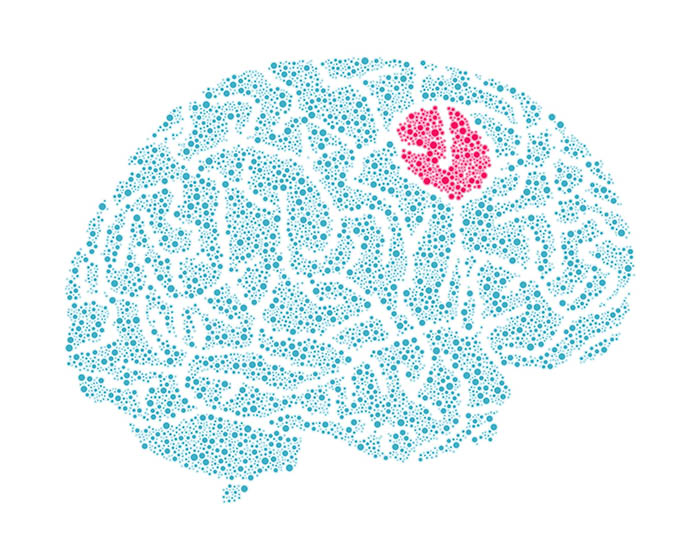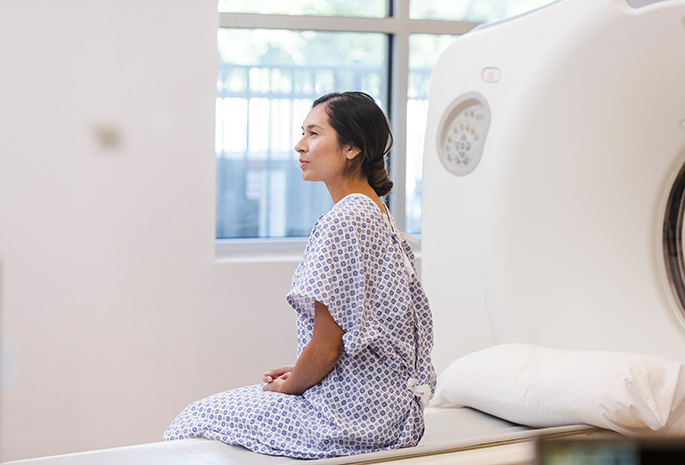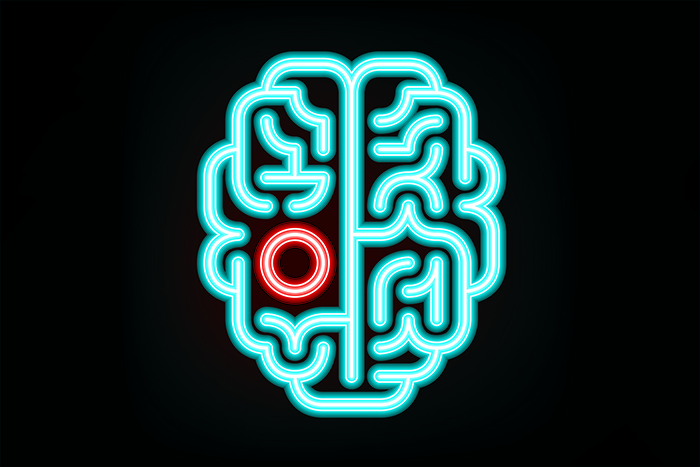Before performing surgery, neurosurgeon Christopher Deibert, MD, needed to gain some vital information. He performed a functional MRI (fMRI) to measure and map brain activity. During the functional MRI, Daniel was asked to tap his fingers and think specific thoughts or words without saying them out loud. These actions caused certain parts of his brain to light up, which gave Dr. Deibert the information he needed to precisely navigate during surgery.
Participating in His Own Surgery
The thought of brain surgery is scary, but the thought of being awake during brain surgery takes a whole new level of courage — and that’s exactly what Daniel was going to have to do.
Dr. Deibert explains, “We want to monitor how well he can speak during surgery so that we don’t take out a part of his brain that affects his ability to talk. We can direct electrical impulses into the brain and if he temporarily can no longer speak, then we know this is an important part of the brain — an area we cannot do surgery on — and we have to avoid it.” The reason it was possible for him to be awake during the procedure is that the brain itself does not experience pain sensations — so, Daniel was not in any discomfort.
Daniel was asleep during the first 45 minutes of his surgery. Then his surgery team woke him up and asked him to engage in conversation and answer questions, while Dr. Deibert worked to remove his brain tumor. They had him count backward, answer simple math questions, identify objects and talk about sports for two hours before they let him go back to sleep.




